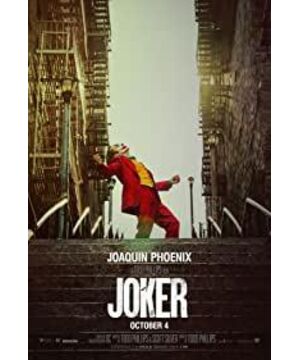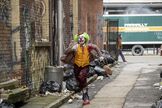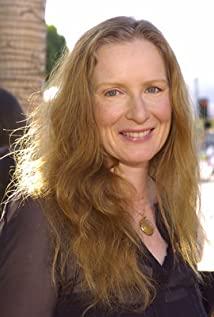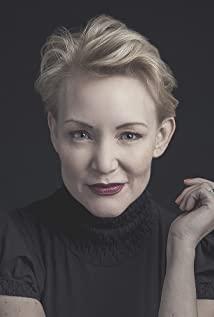It is difficult to re-evaluate "Joker" at the present time from its destiny as a metaphor of reality. After a work is born, it becomes an orphan. When talking about "Joker", it is equally necessary to discuss the work itself and to discuss the metaphor of subjective experience projection and re-creation. The essence of metaphor is a way of identification, but in the silent world north of Gotham City, metaphor has been domesticated as a satirical system that promotes silent communication. But in the face of huge differences in globalization, metaphor has become controversial, and the excessive projection of different positions has made it more complicated.
Superhero is an industrialized film culture symbol. To define "Joker" as an anti-superhero, it is better to admit that it is just an alternative superhero. Alternative superheroes were also born at the bottom. After suffering, they stand under the spotlight, accept the worship of popular culture, and become contemporary gods. The spirit of conventional superheroes is mostly based on the vague politically correct words such as bravery, responsibility, belief, and justice, while the soil for the birth of clowns stems from more emotional anger. The boundaries of the crowd are gradually being activated, and structural contradictions are brewing. Anger seems to be spreading around the world, and its destructive power is enough to penetrate the barrier between reality and virtuality. The sharp reality of the subject matter leads to the populist mood of clowns being mixed into the real world as soon as they are born. On a global scale, the backlog of structural contradictions seems to endow the film with inflammatory and destructive power that was rare in the past. This should be warned by people.
Gotham City is an isolated island-like man-made landscape. The world outside Gotham is shrouded in silence all year round. The dark area does not make any noise. If the prisoner in the cave, coldly watching the carnival on the isolated island: a landscaped experimental field of social sports . I think there is a certain ceiling in filming the complexity of the real world. From a historical point of view, the simplification and induction of the complex reality of film narratives seems crude. This is the fate of commercial films. After trimming the complex reality context, the social contradictions in the narrative of "Joker" are reduced to the conflicts formed by the imbalance between the rich and the poor (causing a vacuum of justice), but you must know that the gap between the rich and the poor is always only a structural appearance. In the story of the clown, Gotham’s crowd boundary is activated, and we have a subjective boundary with them. The bottom Gotham people are no longer willing to accept the social order and justice delineated by the upper-class Gotham people represented by Wayne. The vacuum makes political violence a "legitimate" method. The upper level dominates the media consumption of the lower level, but the magnification given by the media makes Arthur the clown deified as a rebel of the lower Gotham people. After the violence is justified, the clown mask becomes the totem of resistance. However, in order to strengthen the character’s motivation and give Arthur more mechanical tragedy (mental illness, unhappy childhood, social marginalization, bullying), the extra empathy is to build further trust with the audience, but on a certain level, Limits the deeper discussion of "Joker".
Talking about the two "disadvantages" often mentioned in "Joker": one is the lack of broader and in-depth discussion (reflected in the position is too vague, but also sophistry as a kind of silence: providing time openness for expanding thinking); It is "too neat" in the role modeling. For me, the first point does not have much meaning for discussion. The reality of the capitalization and industrialization of the film world determines that it has no obligation to conduct deeper social thinking. Silence is a more cunning approach. But the film must have visible "depth": it is common practice to focus more in-depth discussion on human nature, which is a more cost-effective way to deal with text. Regarding the second point, it is necessary to agree that "Joker" is still a product of Hollywood's classic narrative framework. Once the classic narrative is sufficiently solid, it is often difficult to get rid of the "tidy" evaluation. When it comes to character creation, we can break it down. Look.
The three important points in the creation of clown characters are all embodied in resistance. Specifically, it is a plot of three killings. The first resistance of the clown was resistance to social bullying. Faced with the bullying on the subway, Arthur, who had just experienced a bad day, made an unbearable passive resistance. Due to the deliberately laying out a lot of sympathy scenes, the clown’s passive violence Was given "emotional" legitimacy. This passive resistance in the film brought Arthur's emotional liberation: he gained some kind of power that he didn't have before. The solo dance in the public toilet can be understood as Arthur's oath of power. Arthur saw a more "powerful" himself in the mirror: the clown.
The second resistance of the clown was the destruction of his original self. The second paragraph is very meaningful because it involves the reaction of the group. After the subway murder, the spotlight of the media and public opinion deified the clown. In Gotham City, where the social structure is unbalanced, the boundary of the crowd is activated by the event, "us" and "them." A boundary of identity is formed, citizens are divided into groups of different social classes due to subjective cognition, and the lack of trust between groups has gradually escalated mutual resentment. Citizens who live in peace on weekdays are now activated on opposite borders, and violence is inevitable. The clown incident activated the citizen's boundary mechanism, and its violence was further justified by conforming to the emotions of a certain side. The clown face was consumed as a totem of resistance at the bottom, which was all the rage. This is beyond the clown's expectations.
Although the clown is the activator of the boundary, he does not know it because of his vague position. He is still solving the problem of "self". After discovering that his life was full of lies and misfortunes, Arthur killed his mother with a pillow. The process of killing his mother was also the process by which Arthur killed his original self. The only social and moral attributes of the original self were completely destroyed. Reason, Kindness and morality, Arthur gave up his social attributes of winning the weak. The current Joker has drawn a clear line from the previous clown actor Arthur, and the clown with nothing is no longer restricted by secular barriers.
The third stage of resistance has a strong performance character. At this time, the clown has become an "artist", and becoming an artist is bound to transcend the barriers of ideology and conventions: at the cost of losing reason. The two subsequent killings started with anger and ended with performances. The solo dance on the steps, the curtain call of the riots on the streets, the clowns showed themselves in the form of criminal artists, but were decorated by the activated anger of Gotham City in the name of freedom and resistance: the great rebels. This may not be his original intention (the position of the clown is still quite vague), but in any case he has obtained the spotlight that a real artist deserves. He is the person chosen by history inadvertently.
Naturally, Gotham is also a historically selected city.
View more about Joker reviews











